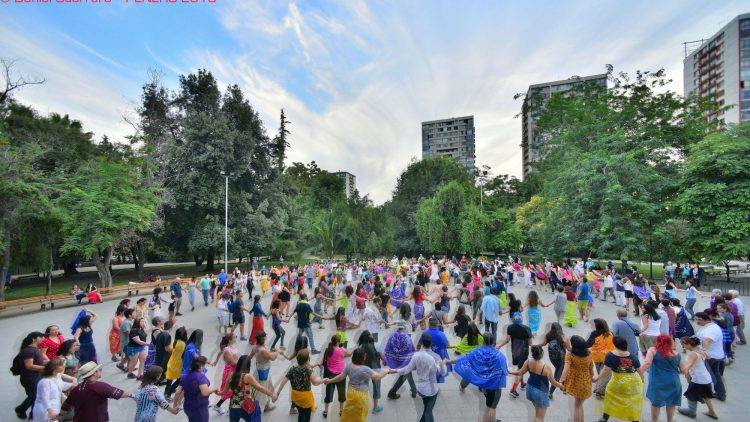The world is in turmoil. After two years of an atrocious pandemic that turned the world economy upside down, a merciless war on Europe’s doorstep has thrown it into turmoil. Is it the destiny of humanity to be swept away by violence? Is there a way out? Is there any hope? Architect Roberto Kohanoff, a Siloist humanist who has been working tirelessly for nonviolence for more than half a century, reflects with us on this point.
By Isabel Lazzaroni
How do you see the present moment?
The Earth’s evolutionary process is accelerating. Like every organism, the Earth is also in process. This is how it allowed the development of increasingly complex life and then the development of the most evolved species until we reach today’s homo sapiens. And this homo sapiens is able to think, feel and act in an increasingly conscious way. In fact, reaching the development of consciousness will be the most advanced step in this evolutionary process, which is proceeding faster and faster.
And what are the consequences of this acceleration?
Historians who have defined what is known as megahistory (an attempt to explain history in maximum temporal and spatial scales, according to the definition of the Mendocino historian Gabriel Peralta) locate a moment towards the end of this decade that they call a moment of singularity. At that moment, due to the speed of change, all current human learning will become obsolete. Then, as a species, we will have to find inspiration to be able to respond to the world’s conflicts with a response that is characteristic of a new species. We might even say a response that goes beyond the homo sapiens that we still are.
And what will happen then?
Then, conflicts arising from the old strategies of “social ordering”, which are based on the use of violence, or on the belief that more violence can do away with the violence we assign to the enemy, will end up hurting both those who receive violence and those who exercise it. It is simple: we are in a closed system, as a consequence of the acceleration I spoke of earlier, which leads to concentration. And in a closed system, violence comes back to the perpetrator.
Is it necessary to overcome violence?
Of course, it is. Faced with this panorama, the new evolutionary step that the human species has to take is the strong expansion of consciousness. And here, the latest research carried out by neuroscience comes to our aid. Neuroscientists explain that learning is accelerated when it is more empathic. This means – because they have proven it – that both children and adults learn better behaviours, which lead to increased adaptation, through good treatment. The great novelty is this: if one brings peace in oneself and brings it to others, the paradigm shift will be implemented quickly. This will be possible because the fine communications network that now covers the entire planet will allow for an instantaneous change – or in a very short time – of those old organisational structures (or old strategies of “social ordering”).
How does one bring peace in oneself?
Peace in oneself is achieved by spreading by example the most ancient of procedures, already recommended by different spiritualities, religions and philosophies, which was called – and is still called – the Golden Rule. In its Western or Judeo-Christian version, this rule says: “love thy neighbour as thyself”. In its most extreme definition, it reads: “love your enemy, he is you”. And it has been redesigned as: “learn to treat others as you want to be treated”. In the practical version of the Golden Rule, according to Silo, it is: “look for the good side of your enemy”.
Then, when you see the futility that more violence cannot end violence, that learning will emerge for everyone, the learning that with inner peace you can achieve peace in the world.
Is this possible?
This requires the renunciation of the use of violence between countries and regions, but also between communities, between friends, between family members and with oneself.
If there is one nature in human beings, it is the capacity for change. No species on Earth has undergone such great change and acceleration of change as the human being. And the violence that seems to be human is a primitive inheritance. But, as strong as that heritage is the heritage of the growing capacity for cooperation that is leading us to a new civilisation, the first that involves the whole Earth, the first that is universal.










